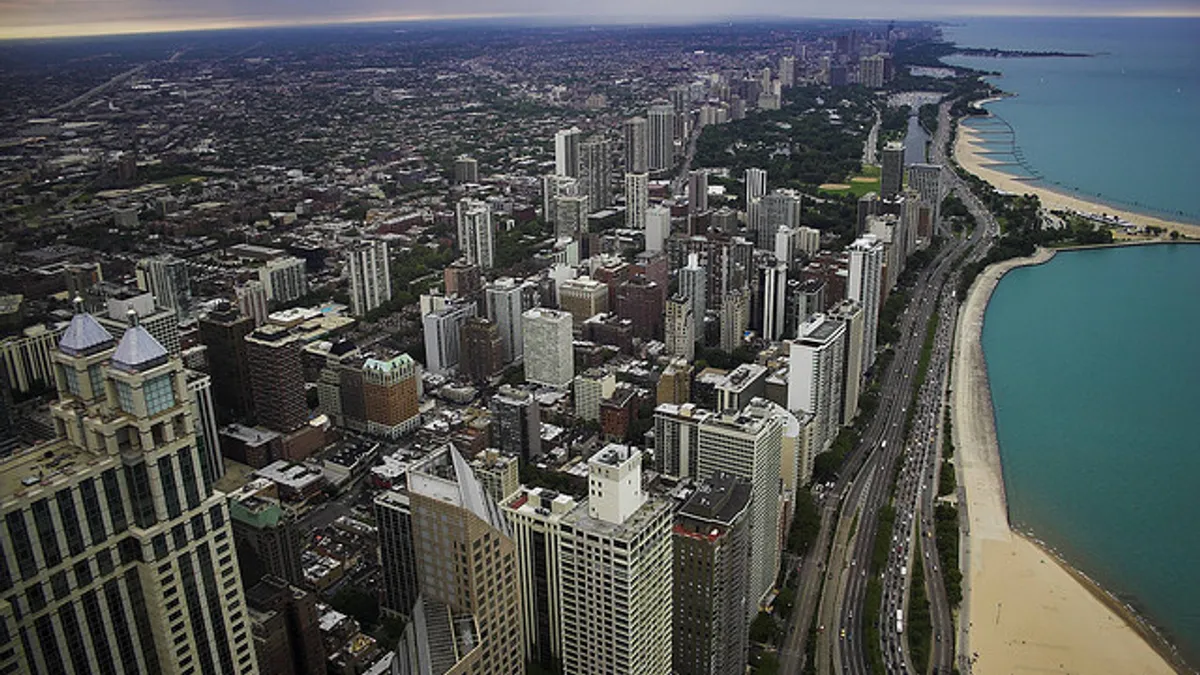Dive Brief:
- The Chicago Board of Education is expected to greenlight up to $840 million in additional debt today for new school construction and renovations, according to the Chicago Tribune. The board will also vote on a $160 million bond deal to refinance previous obligations.
- After a Moody's downgrade in the board's bond rating, detractors of the school board's plan claim that the cost to sell the new property tax-backed bonds will be high. However, the prospect of such a large construction program for the city is bound to garner favor, according to the Tribune.
- The school board's borrowing and construction plan relies on a tentative $200 million state contribution, outlined in the as-of-yet unapproved board budget. The district had put forward a $338 million capital budget, with $233 million financed through property taxes, before its most recent proposal.
Dive Insight:
School districts have been increasingly taking on ambitious construction and renovation programs, with many of them focused on boosting energy efficiency and producing more sustainable structures. For example, California voters will decide next month on Proposition 51, a measure that would authorize a $9 billion bond deal to finance new school construction, as well as repair and replace older facilities. State officials said this measure is only the beginning of a necessary $22 billion in school construction spending for the next 10 years. The state's construction industry is obviously pro-51, but Gov. Jerry Brown said the state can't afford the extra $500 million payment on education bonds.
While not as pricey as California's proposed plan, Baltimore has started construction of two multimillion-dollar schools as part of a $1.1 billion school upgrade and construction initiative. The program, financed though revenue bonds, will see 28 new and rehabbed schools completed by 2020, all managed by the Maryland Stadium Authority. The project will allow for at least double the district's current enrollment.
Although it's the job of public watchdogs to play devil's advocate when it comes to public spending, this is truly the time for bond-financed deals. According to Bloomberg report, more local public entities are using municipal bonds to finance their public building and infrastructure projects, thanks to record-low interest rates. In the dash to complete these deals, Barclays Plc said municipal bond issues might reach $400 billion by the end of 2016.











